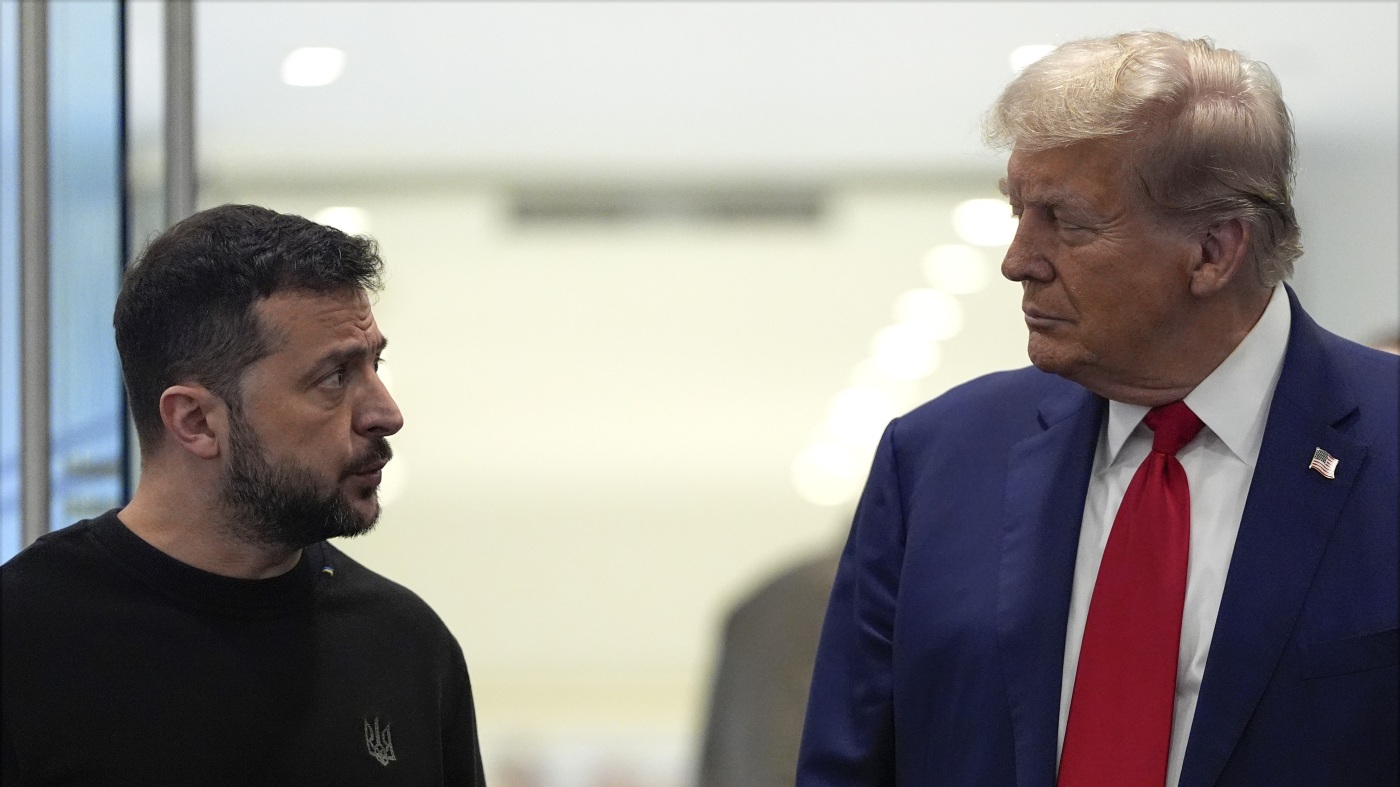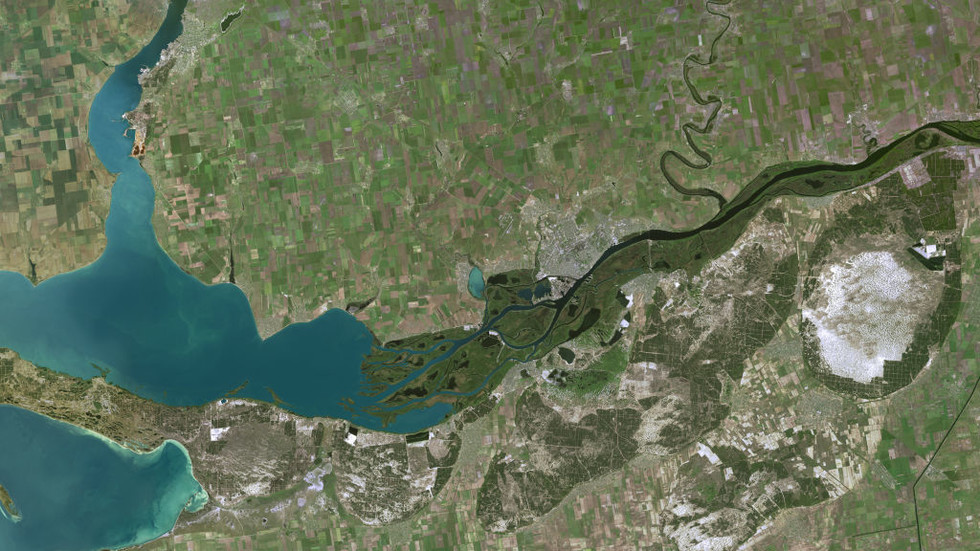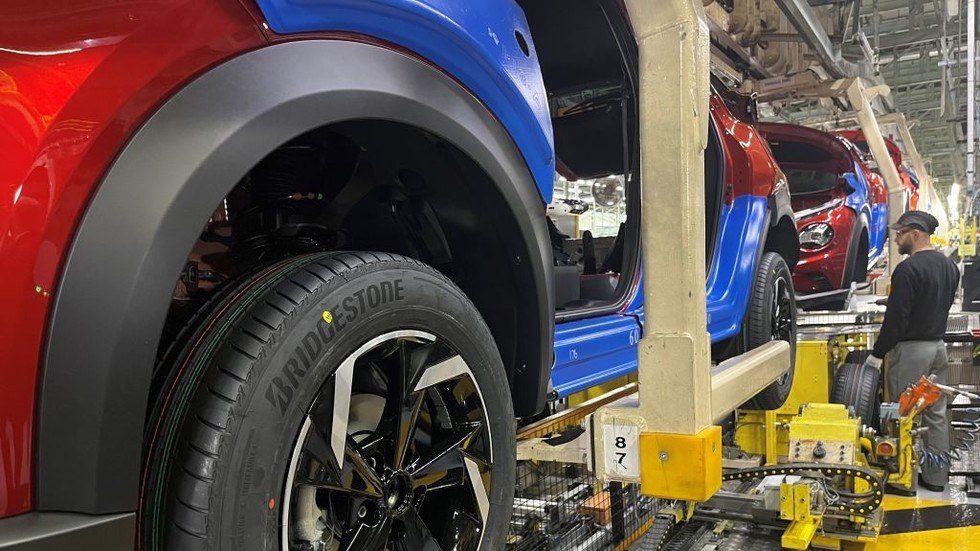Russian president Vladimir Putin's visit to China on Thursday could spell trouble for the West.
Back in March 2023, Russian president Vladimir Putin and his Chinese counterpart Xi Jinping addressed each other as "dear friends".
It appears not much has changed.
During Putin's visit to China on Thursday, Xi said "the China-Russia relationship today is hard-earned, and the two sides need to cherish and nurture it."
The exchange between the two autocratic allies tells us two things.
One: the pair are hard at work flaunting their strong relationship to the West, as the US and other Western powers continue to sanction Russia amid the war in Ukraine.
Two: China likely continues to support the Russian war machine.
A key diplomatic ally to Russia, Beijing has emerged as a top export market for Russian oil and gas - helping fill the Kremlin's war coffers. Russia also relies on China for high-tech imports to keep its military machine running.
As the Chinese president greeted the Russian leader in Beijing's Great Hall of the People on Thursday, the war in Ukraine was top of the agenda - as well as tensions in the Middle East, and cooperation on economics and defence.
But there are many aspects to the two-day state visit.
Allies against the West
Putin's trip to China is his first since being inaugurated for a fifth term in office.
He said this was down to the “unprecedented level of strategic partnership between our countries.” Beijing has declared it a “no-limits” friendship.
Both Xi and Putin see Western efforts to spread democracy as an attempt to de-legitimise them. They believe that authoritarian regimes are better for confronting the challenges of the modern world.
While China hasn’t provided Russia with arms to use in Ukraine, it has backed Moscow diplomatically, blaming the West for threatening Russia’s security. China also has strongly condemned Western sanctions against Moscow.
Russia, in turn, has consistently voiced support for Beijing on issues related to Taiwan.
China's role in Ukraine
According to the US, China has massively expanded supplies of machine tools, microelectronics and other technology to Russia - all components used to make missiles, tanks, aircraft and other weapons.
US assessments suggest Russia got about 90% of all microelectronics and about 70% of machine tools from China in 2023.
In an interview with Euronews last month, US Secretary of State Anthony Blinken suggested Russia might struggle to maintain its momentum in Ukraine without China's support.
"China has a relationship with Russia that gives it some leverage. I don't want to exaggerate it, but gives it some leverage," Blinken told Euronews.
"With Russia, Russia is increasingly dependent on China. It's the junior partner in this relationship, but it's increasingly dependent on China."
Blinked added he hoped China's leverage in Russia might be used to convince Putin to change his course in Ukraine.
But China has consistently insisted on its neutrality in the Ukrainian conflict - while also refusing to condemn Russia's actions or even call it an invasion.
Beijing blames the hostilities on the West and has spoken out against economic sanctions on Russia.
As Ukraine marked the first anniversary of the beginning of the war last year, Beijing's foreign ministry outlined a 12-point plan, which called for peace talks and for both sides to respect national sovereignty.
The statement did not however call for the withdrawal of Russian troops from Ukraine - something Kyiv has long demanded as the only way of ending the war.
China has however turned a cold shoulder to a Ukraine peace conference held by Switzerland in June, which has snubbed Russia.
Beijing has said it supports a conference attended by both parties in the war.
Military cooperation
As diplomatic ties between Beijing and Moscow continue to deepen, so do their military collaboration.
The allies have taken part in several joint war games in recent years, including naval drills and patrols in the Sea of Japan and the East China Sea, including one in the Gulf of Oman this year with Iran - another anti-US power.
Putin said Moscow has been sharing highly sensitive military technology with China that significantly bolstered its defence capability, including an early warning system to spot ballistic missile launches.
In November, Putin suggested Moscow and Beijing could expand their cooperation by sharing more of their military satellites and other defence technologies.

 5 months ago
25
5 months ago
25









